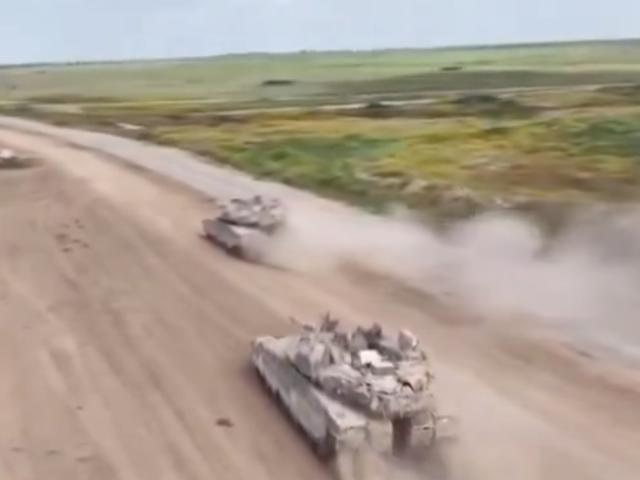In a significant shift in the conflict dynamics within the Gaza Strip, the Israel Defense Forces (IDF) have executed a strategic withdrawal of all ground troops from the southern region, particularly after an intensive four-month campaign in the Khan Younis vicinity. This move comes amidst preparations for a potential ground invasion into Rafah, a city in southern Gaza that has become a refuge for over half of Gaza's population of 2.3 million people. Israel has consistently highlighted Rafah as a critical stronghold of Hamas, signaling its importance in the broader strategy to dismantle the militant group's capabilities within the region.
The prospect of an invasion into Rafah had been met with stark warnings about the severe consequences such actions could entail. The decision to withdraw, at this juncture, raises questions about the possible delay or reassessment of the planned incursion into Rafah, against a backdrop of speculations that Israel might be positioning itself in anticipation of retaliatory actions from Iran. This comes in the wake of a bombing incident last week, targeting an IRGC facility near the Iranian embassy in Damascus, which resulted in the death of the IRGC's top leadership. The attack, widely attributed to Israel, marks a significant escalation in the regional tensions, potentially influencing Israel's military priorities and readiness.
And just like that reports of rocket fire from Khan Yunis into Israel hours after a total withdrawal
— Donnie 🇺🇸 (@AdeptAnalytic) April 7, 2024
The IDF just announced the deployment an hour ago, but Hamas probably saw them withdraw last night https://t.co/dJhBbfWDZ6
Currently, the Nahal Brigade remains as the sole IDF presence within the Gaza Strip, entrusted with the critical mission of securing the Netzarim Corridor. This corridor is strategic for multiple reasons: it facilitates IDF operations across northern and central Gaza, prevents the return of Palestinians to the Strip's northern areas, and ensures a conduit for humanitarian aid to reach northern Gaza. This positioning underscores the multifaceted nature of IDF's operational goals, balancing military objectives with humanitarian considerations.
The potential offensive in Rafah is viewed by many experts as a pivotal moment in the conflict, marking the six-month anniversary of the war. With an estimated 1.2 million refugees having fled to Rafah in the wake of IDF's operations against northern Hamas strongholds, the city's prewar demographic landscape has been drastically altered. This surge in population not only exacerbates the humanitarian crisis but also complicates the military's efforts to neutralize the remaining Hamas factions believed to be operating within the area.
Preparing for the Rafah operation: Politicians say this morning that the withdrawal of IDF forces from Khan Yunis is a further step in the preparations for the expected Rafah operation.
— BREAKING NEWS - ALERTS (@IsraelNews23) April 7, 2024
The anticipated assault on Rafah is deemed critical for several reasons, not least for the potential it holds in securing the release of approximately 130 Israeli hostages. National security expert Glenn Ignazio articulates a scenario where a successful operation in Rafah could pivotally shift the pressure onto Hamas to release the hostages, potentially marking a significant shift in the conflict's dynamics. Furthermore, the success of such an operation is crucial for the long-term security of Israel, aiming to shut down the Philadelphi corridor, a known route for weapon smuggling from Egypt into Gaza, thereby crippling Hamas's logistical capabilities.
However, the path forward is fraught with challenges, particularly in light of recent international scrutiny over an accidental attack on aid workers and the escalating Palestinian casualty toll. These developments necessitate a recalibration of Israel's military tactics, with experts like Bruce Hoffman from the Council on Foreign Relations suggesting a more surgical and restrained approach to the upcoming operations. The dense urban environment of Rafah demands a nuanced engagement strategy, likely emphasizing precision airstrikes and specialized ground forces to mitigate civilian casualties while achieving strategic objectives.
“Hours after the withdrawal, five rockets were fired from the Khan Younis area at communities near the Gaza border.”
— A.K. (@Amshelkaf) April 7, 2024
And you ask for a ceasefire from Israel that the Hamas refuses.. https://t.co/9p3xD6zaJa
As Israel braces for a complex and potentially protracted engagement in Rafah, the international community watches closely. The decisions made in the coming weeks could have profound implications for the conflict's trajectory, humanitarian outcomes, and the broader regional security landscape.


